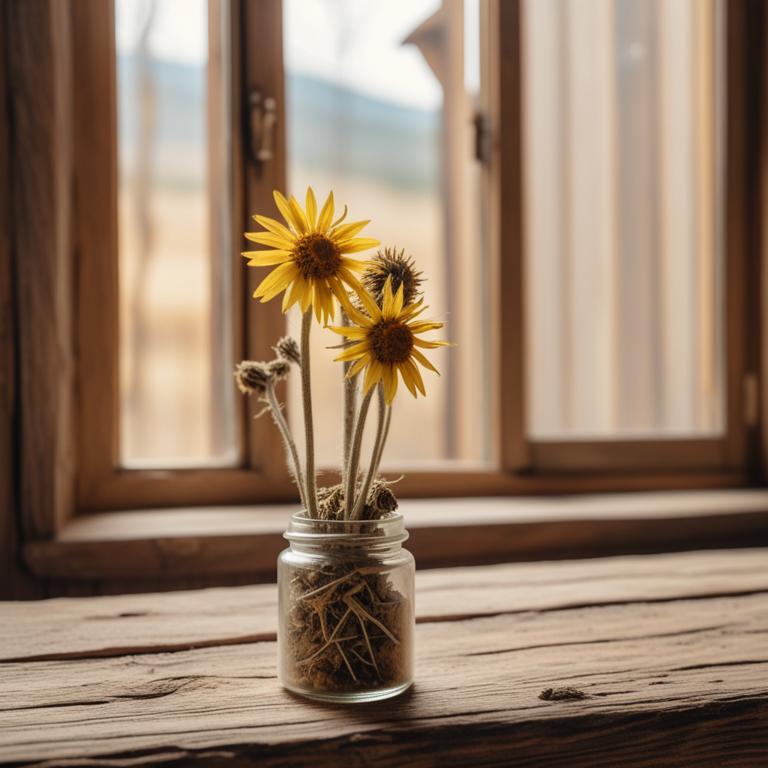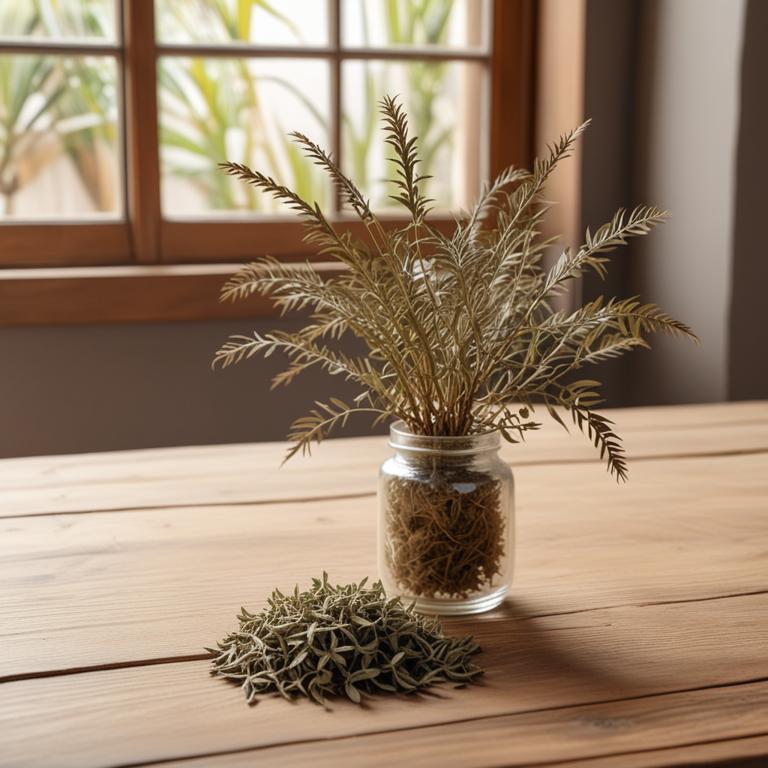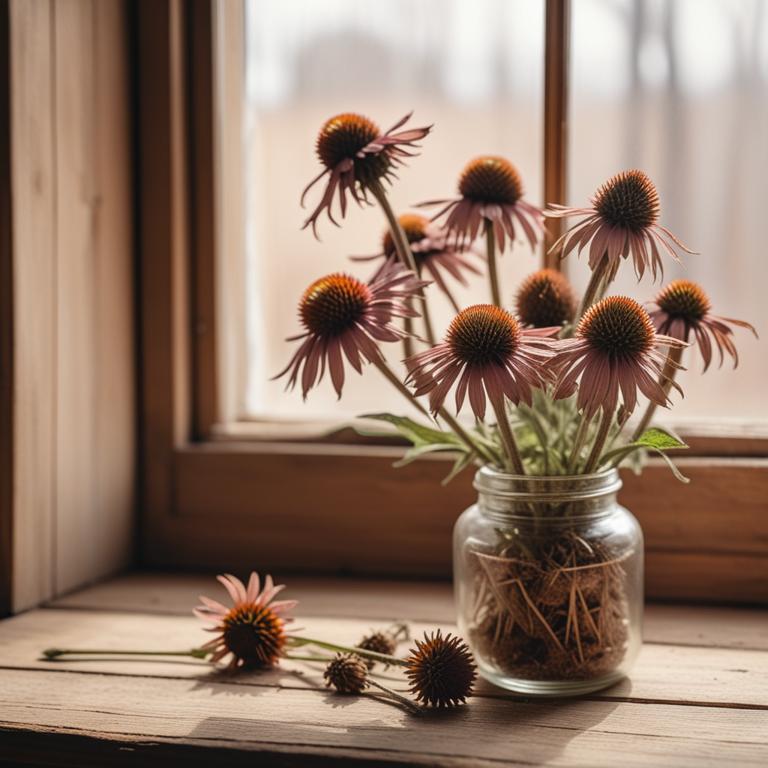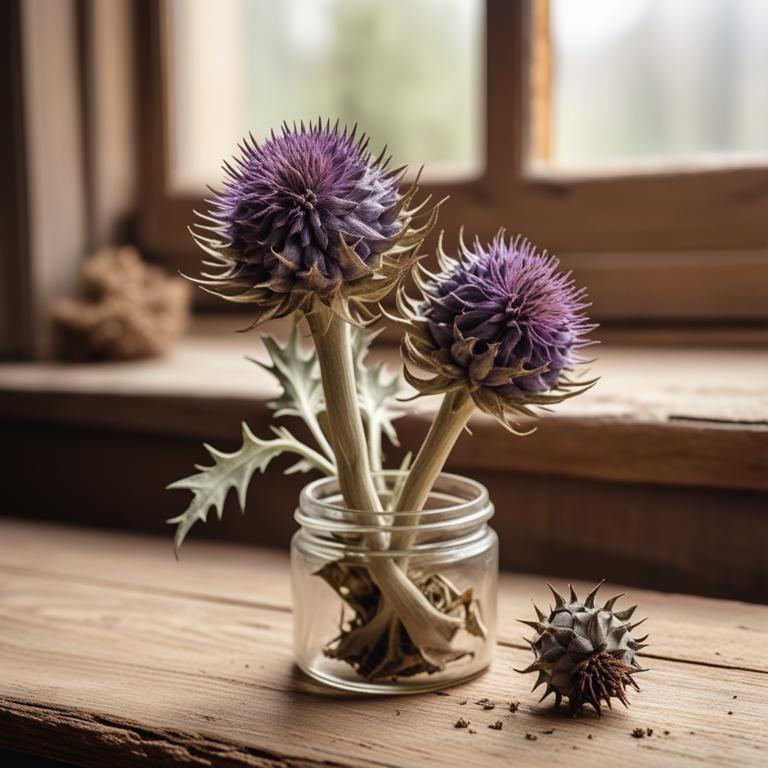Updated: Dec 1, 2024
Causes and Remedies for Dark Lips: Medicinal Herbs and Herbal Preparations
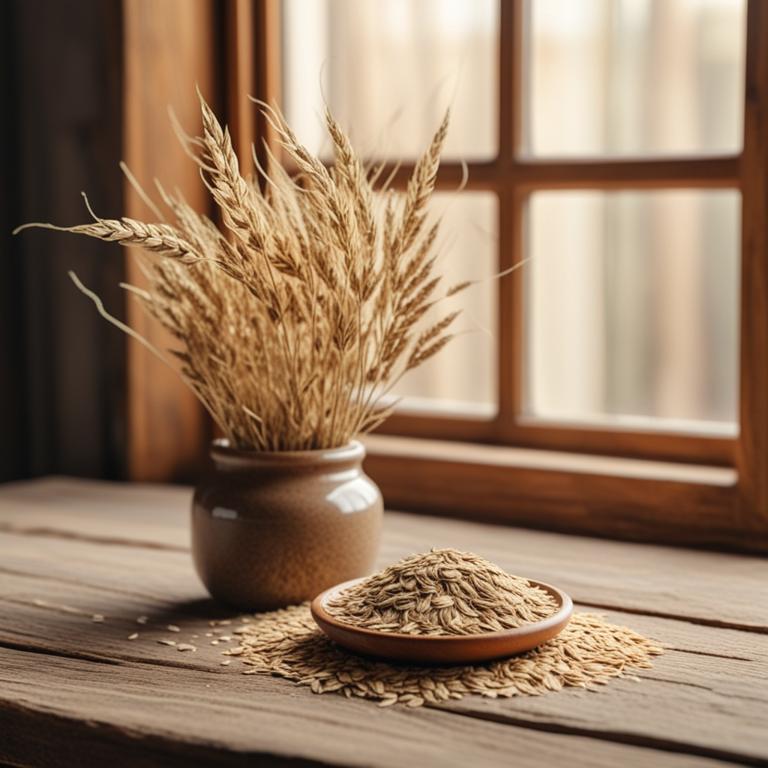
Dark lips can make you feel self-conscious and affect your confidence.
They can be a sign of a more serious health issue, such as anemia or vitamin deficiency. Dark lips can also be caused by smoking, genetics, and exposure to the sun. When the skin on your lips becomes darker than usual, it can make it harder to apply lipstick or lip gloss. To treat dark lips, some people turn to herbal remedies. Certain herbs have been used for centuries to lighten and soothe the skin on the lips.
For example, turmeric is a natural anti-inflammatory that can help reduce the appearance of dark spots. It can be mixed with a carrier oil like coconut or olive oil to create a paste that's applied to the lips. Ginger is another herb that's been used to lighten and even out the skin tone on the lips. It can be made into a tea by steeping fresh ginger in hot water, then cooled and applied to the lips with a cotton swab. Rose petals are also used to soothe and calm the skin on the lips, reducing inflammation and promoting even skin tone. To make a rose petal remedy, steep dried rose petals in hot water, let it cool, and then apply the liquid to the lips with a cotton swab.
These herbal remedies can be used in combination with other treatments to help lighten and even out the skin tone on your lips.
Table of Contents
What factors lead to dark lips?
The main causes of dark lips are a combination of internal and external factors.
Hormonal imbalance is one of the main causes, particularly during puberty, menstruation, or menopause, when hormonal changes can cause blood vessels to dilate, leading to dark discoloration of the lips. Dehydration is another significant cause, as a lack of water can cause the body to pull water from other parts, including the lips, resulting in dryness and darkening.
A diet lacking essential vitamins, especially vitamin B12, can also lead to dark lips, as these vitamins play a crucial role in maintaining healthy skin and tissues. Smoking is a well-known cause of dark lips, as the chemicals in tobacco smoke can damage the delicate skin of the lips, causing them to become dry, cracked, and dark.
Finally, a lack of omega-3 fatty acids can also contribute to dark lips, as these healthy fats help to nourish and protect the skin, including the delicate skin of the lips.
What benefits do herbs provide for dark lips?
Using herbs to treat dark lips can be really helpful.
One of the main benefits is that they can help to reduce the appearance of discoloration. These herbs contain natural pigments that can help to even out the skin tone and make the lips look lighter.
They can also help to nourish and moisturize the lips, making them look healthier and more vibrant. This can be especially helpful for people who have naturally darker lips or who have experienced lip discoloration due to sun damage or other environmental factors. By using herbs to treat dark lips, you can also avoid harsh chemicals and artificial products that can irritate the skin and make the problem worse.
Instead, you can use natural remedies that are gentle and effective, helping to restore a healthy and even-looking complexion to your lips.
What are the main medical herbs used to address dark lips?
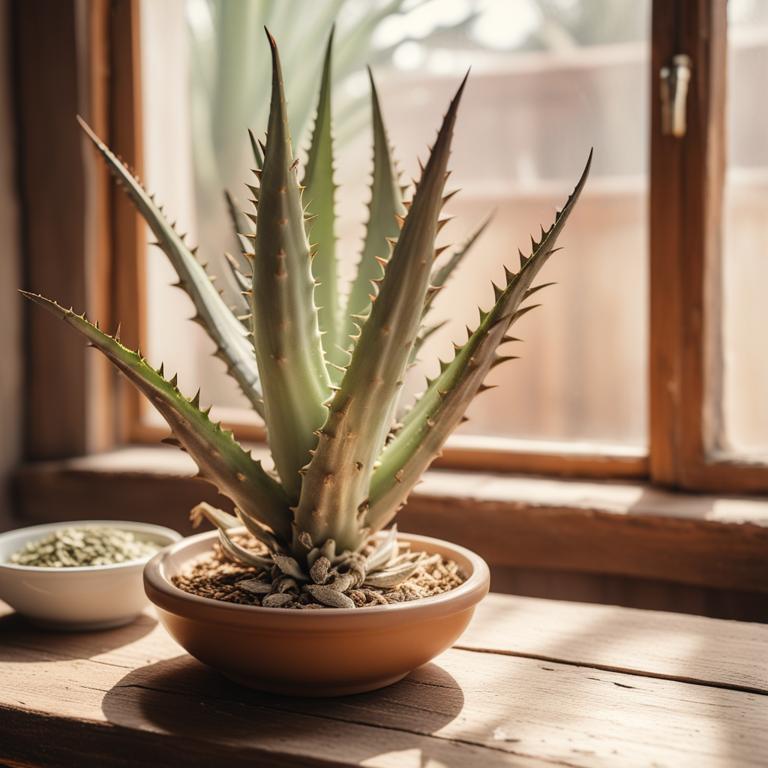
If you're dealing with dark lips, you might be looking for some natural solutions to lighten them.
Herbs can be very effective in this case. Aloe barbadensis is one of them. It has anti-inflammatory properties that can help soothe and calm your lips. When applied topically, it can reduce redness and irritation that can make your lips appear darker. Rosmarinus officinalis, also known as rosemary, is another herb that's good for your lips. It has antioxidant properties that can help protect your skin from damage and promote healthy cell growth. This can lead to lighter and smoother-looking lips over time. Glycyrrhiza glabra, or licorice root, has anti-inflammatory properties as well.
It can help soothe and calm your lips, reducing redness and irritation that can make them appear darker. Calendula officinalis, also known as marigold, can also be used to lighten dark lips. Its anti-inflammatory properties can help soothe and calm your lips, while its antioxidants can promote healthy cell growth and protect your skin from damage. Cassia auriculata, or golden shower, has been traditionally used to lighten dark lips. It has antioxidant and anti-inflammatory properties that can help soothe and calm your lips, reducing redness and irritation. It can also help promote healthy cell growth and protect your skin from damage. To use these herbs, you can make a paste by mixing them with water or oil and apply it to your lips. You can also add them to your lip balms or lip scrubs for added benefits.
Just remember to do a patch test before using any new ingredient to ensure you don't have any sensitivity or allergic reactions.
What herbal remedies are used to address dark lips?
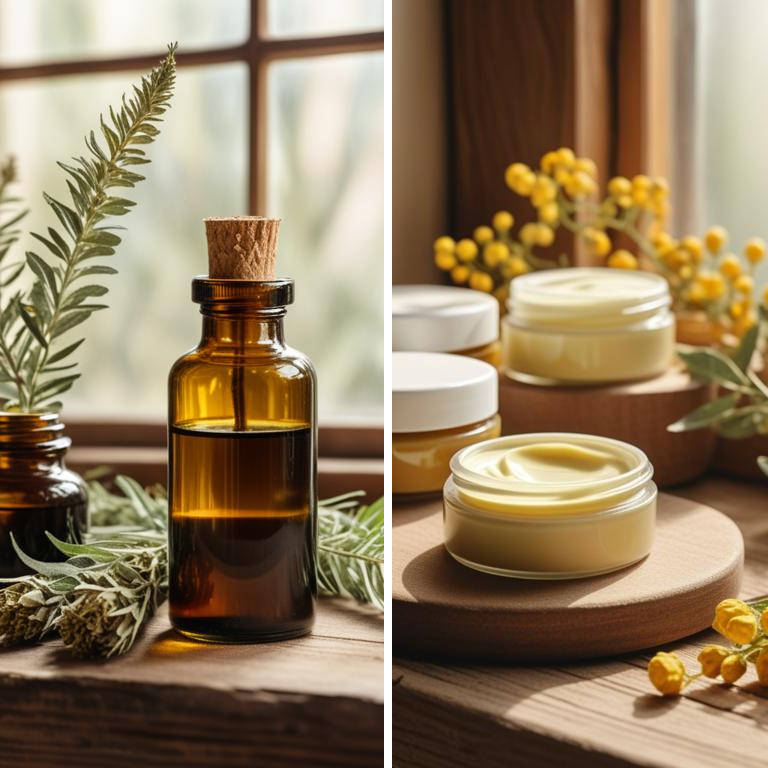
If you have dark lips, there are some herbal preparations that can help.
A gel made from aloe vera or vitamin E can be applied to your lips to soothe and lighten them. A decoction, which is a liquid made by boiling herbs, can be used as a mouthwash to help remove bacteria and germs that can cause dark lips.
A tincture, which is a liquid extract of herbs, can be applied directly to your lips to help lighten and even out their color. A cream made from herbs like chamomile or calendula can be applied to your lips to moisturize and soften them, making them look healthier and lighter. A salve, which is a thick and oily liquid, can be applied to your lips to lock in moisture and protect them from the sun and wind, which can cause darkening.
These herbal preparations can help to gently and naturally lighten your lips, without any harsh chemicals or side effects.
Additional Resources:
What herbs should be avoided if you suffer from dark lips?
If you have dark lips, it's a good idea to be careful with some herbs that can make them even darker or more sensitive.
For example, Hypericum perforatum, also known as St. John's Wort, can cause your skin to become more sensitive to sunlight, which can make dark lips even more noticeable. Senna alexandrina is a laxative herb that can cause your skin to become dry and irritated, which can also make dark lips appear more prominent.
Similarly, Cinchona officinalis, also known as Quinine, can cause your skin to become more sensitive and may even lead to dark spots or discoloration, including on your lips. Berberis vulgaris, also known as Barberry, contains a compound called berberine, which can cause your skin to become more sensitive and may even lead to dark discoloration. Lastly, Rheum officinale, also known as Rhubarb, is another laxative herb that can cause your skin to become dry and irritated, which can make dark lips appear more noticeable.
If you have dark lips, it's best to talk to a healthcare professional before using any of these herbs, especially if you plan to use them for an extended period.
FAQ
Are there any specific herbs that can prevent dark lips?
Some herbs like aloe vera and turmeric have been used to help keep lips healthy and prevent dark spots. Aloe vera has anti-inflammatory properties that soothe and calm the skin, while turmeric contains a compound called curcumin that has antioxidant properties that can help reduce inflammation and promote even skin tone.
Is it safe to use herbal remedies for dark lips during pregnancy?
It's generally recommended to be cautious when using herbal remedies during pregnancy.
Some herbs can stimulate the uterus and cause problems. If you want to try a remedy for dark lips, look for ones that are labeled as safe for pregnancy.
Stick to small amounts and monitor your body's reaction.
Are there any herbs that can reduce the frequency of dark lips?
Aloe vera and turmeric have been found to help reduce the frequency of dark lips.
Aloe vera's soothing properties can calm and moisturize the skin, while turmeric's anti-inflammatory properties can help reduce pigmentation.
Using aloe vera or turmeric-infused lip balm may help to lighten and even out lip color.
Can i combine different herbal remedies for dark lips?
You can combine different herbal remedies for dark lips, but be cautious.
Mixing certain ingredients can cause unwanted reactions. Try combining aloe vera with turmeric, which can help even out your lip color and reduce darkness.
Alternatively, you can mix beetroot powder with coconut oil for a natural stain that helps to lighten your lips over time.
Related Articles
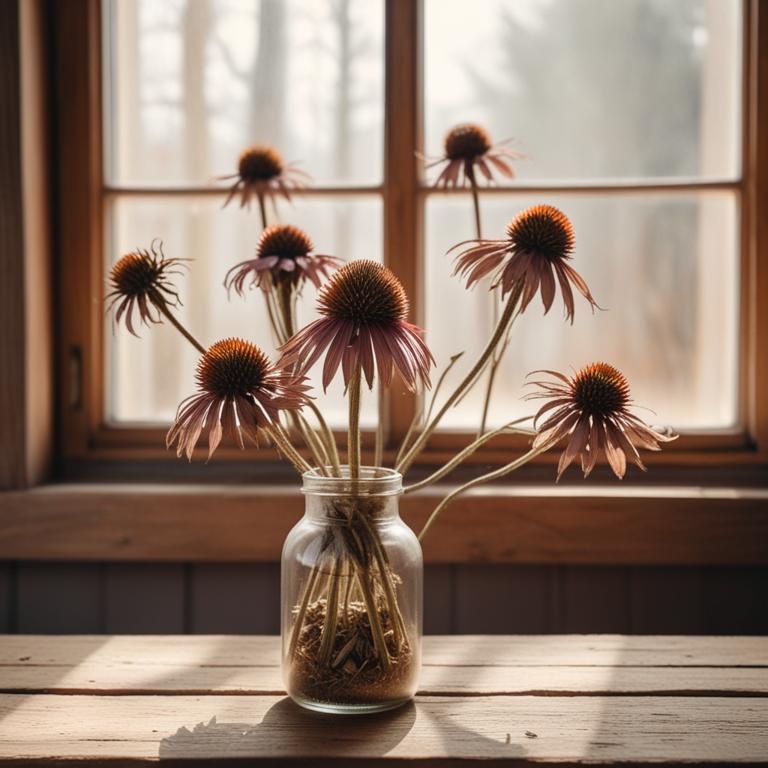
Causes and Herbal Remedies for Toothache Pain
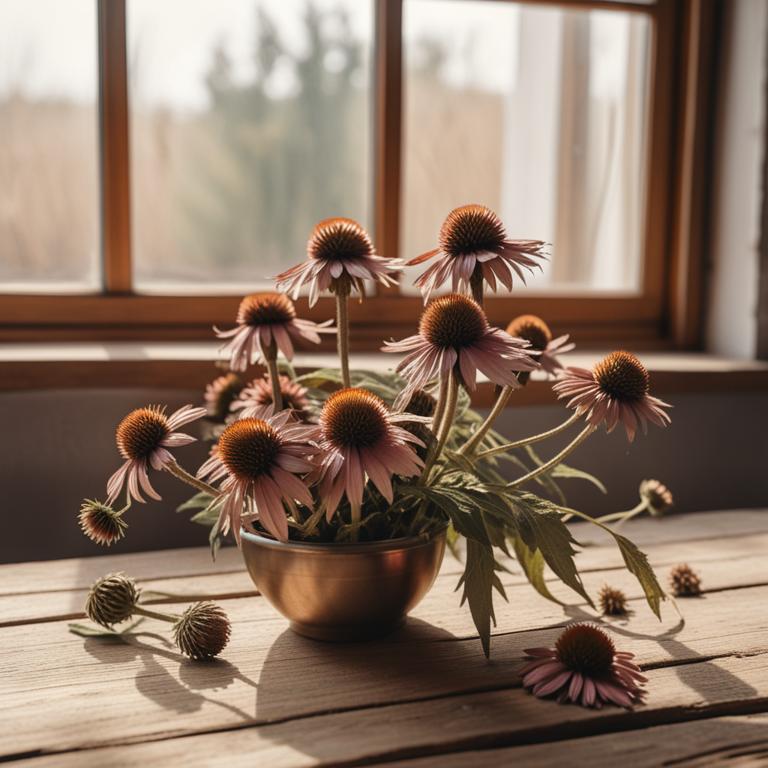
Ingrown Toenail: Causes, Symptoms, and Herbal Preparations for Relief
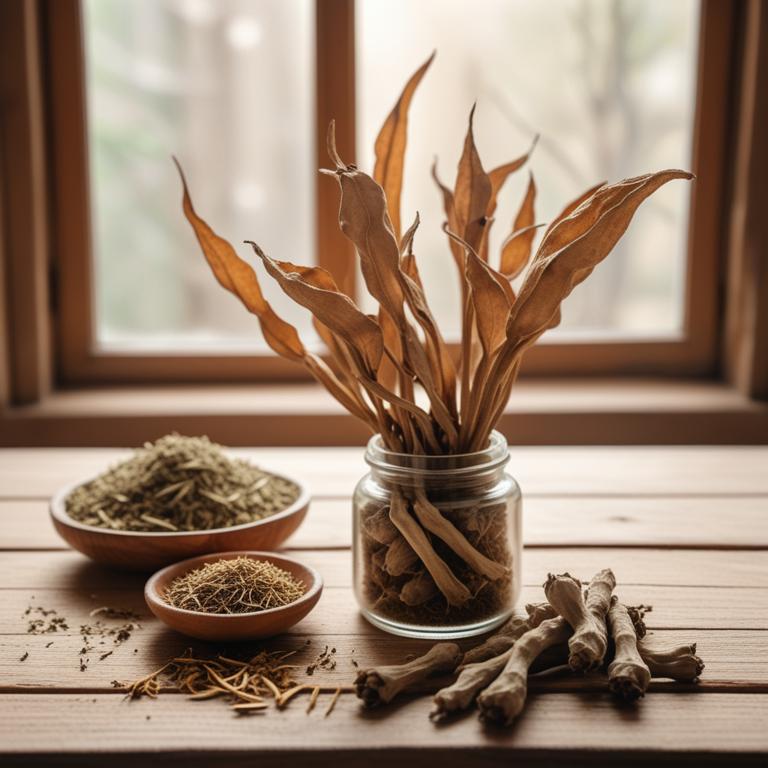
Tooth Decay: Causes, Prevention, and Herbal Preparations
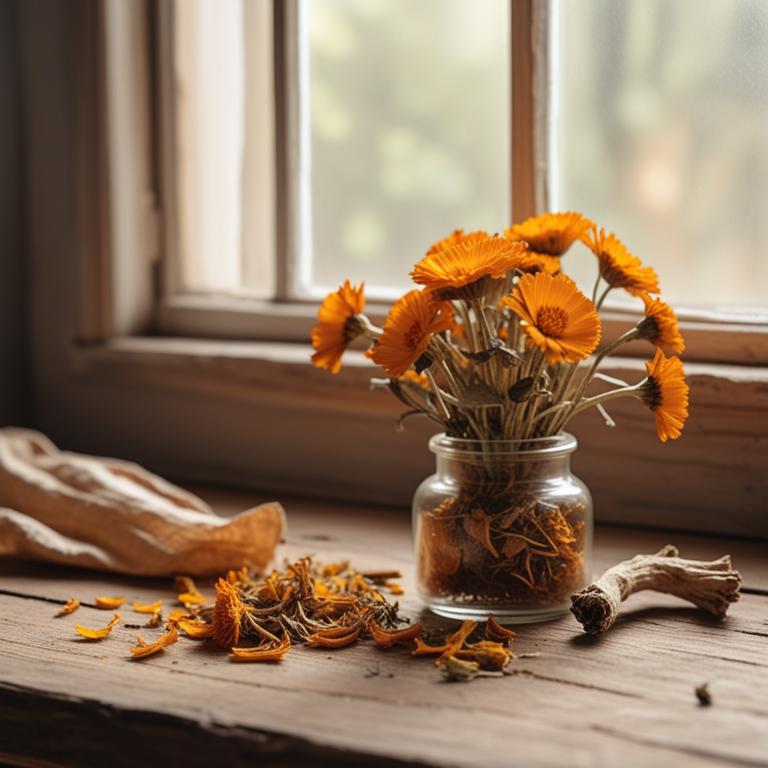
Red Eyes: Causes, Herbal Preparations, and Home Remedies
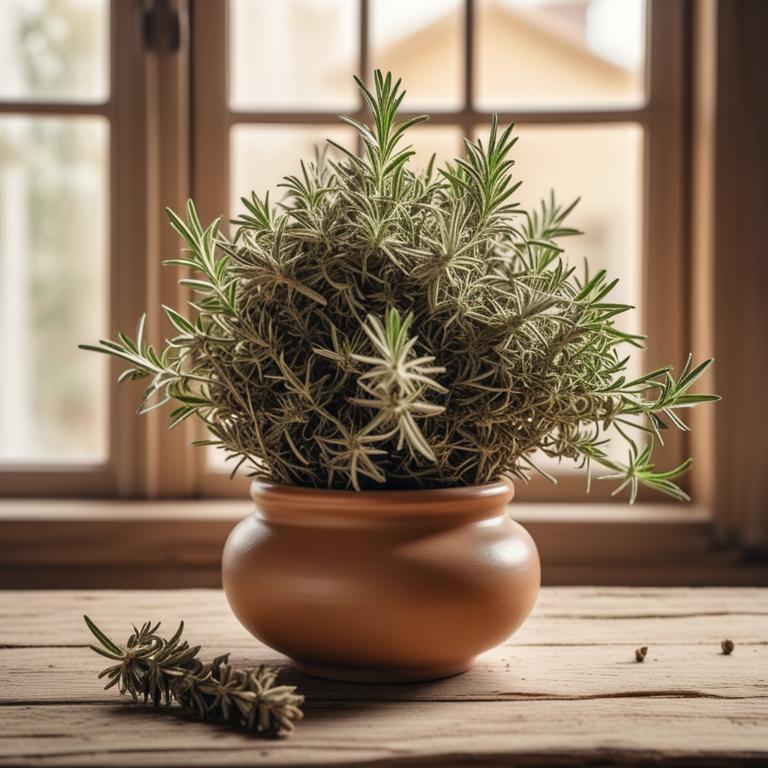
Understanding and Treating Oily Skin with Medicinal Herbs and Preparations
